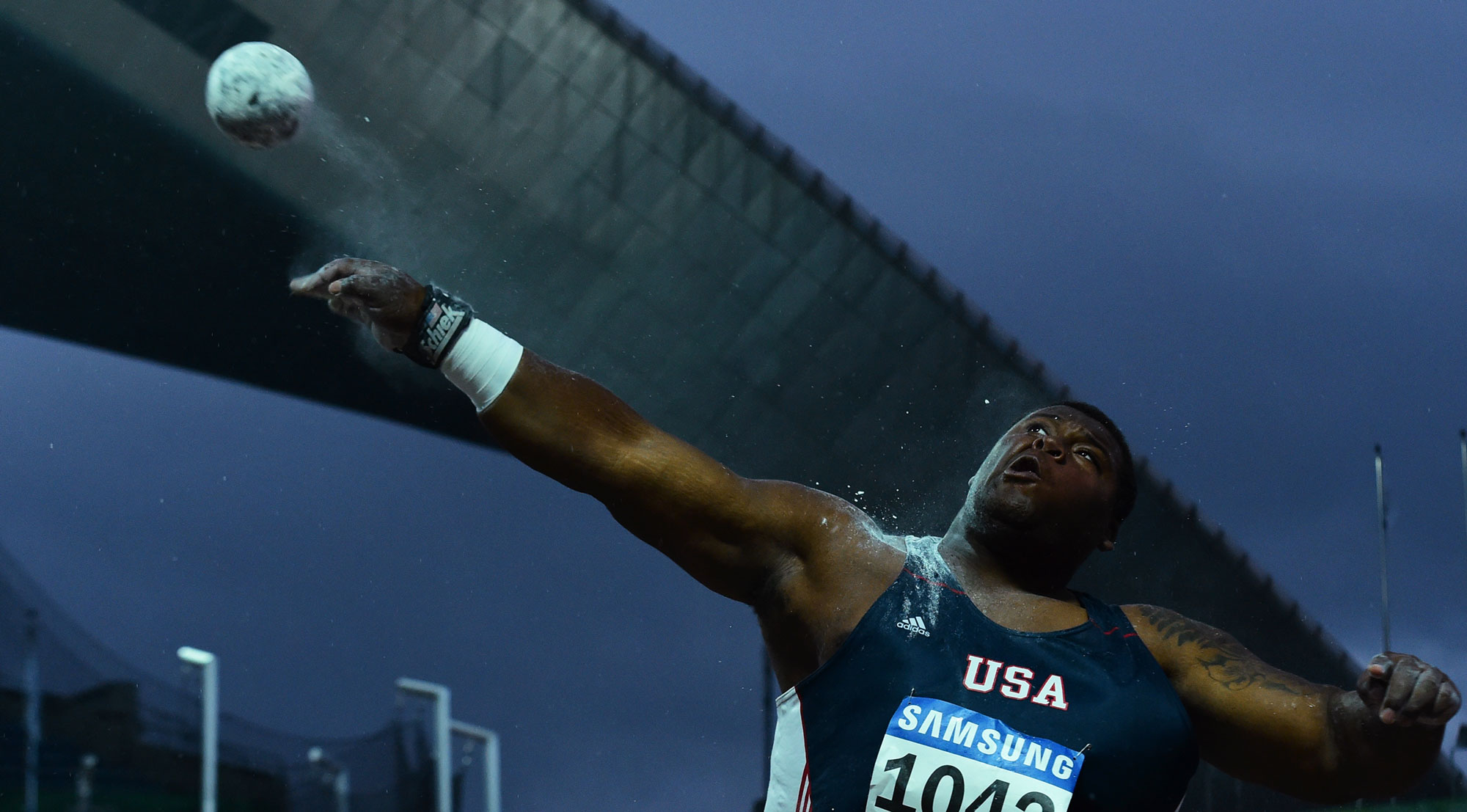
BRUSSELS — Breaking down barriers, both personal and societal, is the nature of sports. Journalism plays the same game. From action shots inside the arena to interacting with athletes in the mixed zone, sports journalism relies on a reporter’s inherent right for access and the right to accurately report on sports events.
While FISU events follow the highest journalistic standards to allow the press to cover international university sport, this is not always the case at all sporting events — at everything from the local to global level. During the final day of the 81st AIPS Congress delegates spoke up about the mounting obstacles sports journalists face as they work to fulfil their public duty to inform audiences. For this to happen, journalists must be free from control or restriction by government, political, idealogical and economic matters.
From excessive fees for rights to being denied gametime event access to club-only control of communications, sports journalists point to a growing trend of restricted access infringing on their inherent right to a free press in recent years. When you consider the social relevance of sports and the emotions and pride the athletes install in people this is no trivial matter.
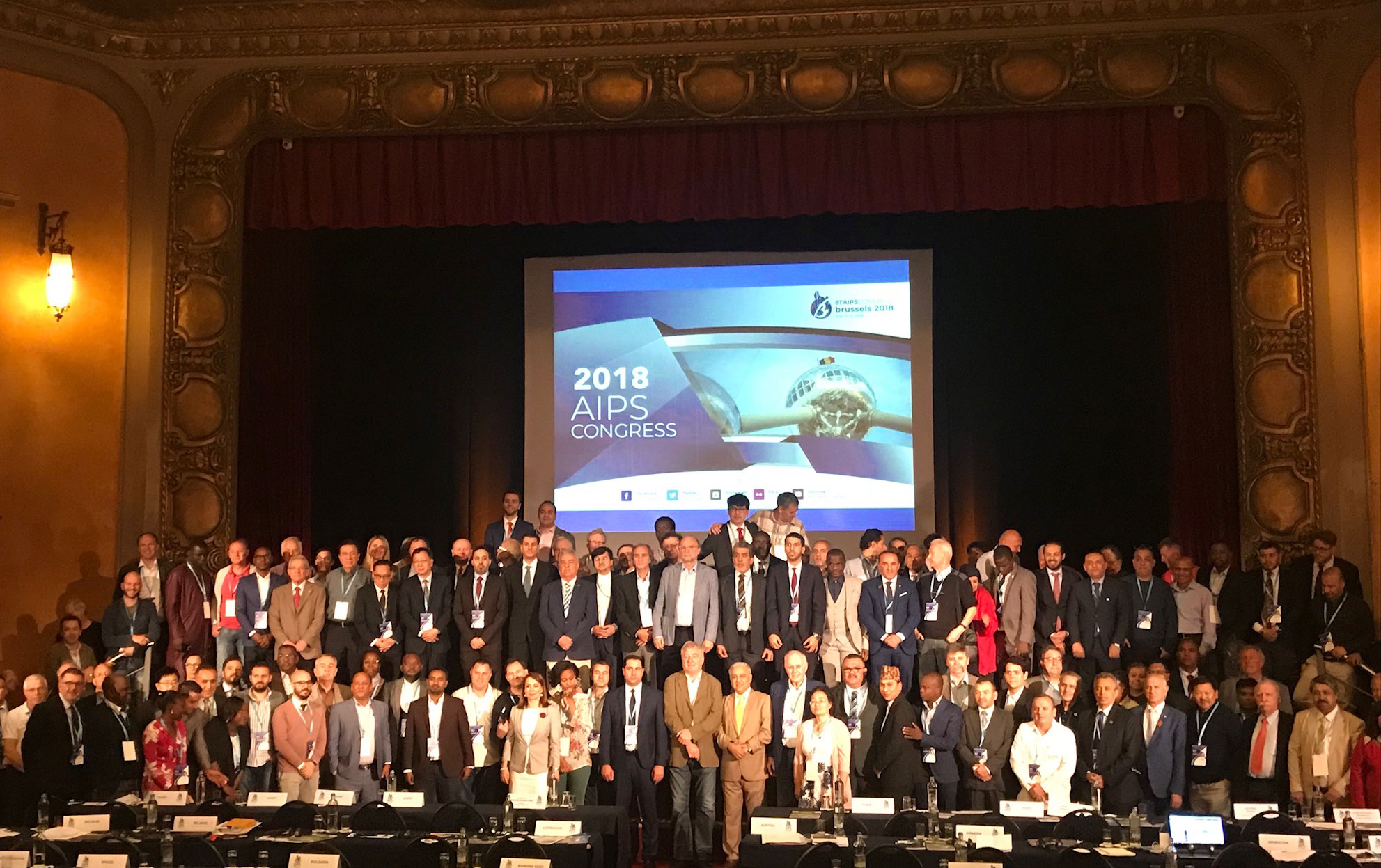 The AIPS membership at the event’s 81st edition. The press association has been an advocate for right to media access and mentor for quality sports journalism since 1924.
The AIPS membership at the event’s 81st edition. The press association has been an advocate for right to media access and mentor for quality sports journalism since 1924.
Belgium radio personality David Naert updated the AIPS membership on a petition he and French AIPS executive committee member Jean-Paul Savart have taken to the European Parliament as they seek a guaranteed access to sports events throughout the European Union. The petition is ongoing.
‘This cannot be country-by-country; we need to develop a European standard to use as a global standard,” Anthony Edgar, an AIPS member and head of IOC’s Media Relations said from the Congress floor. “Europe needs to take the lead on this. When Europe does this, the world will follow.”
CELEBRATING THE BEST
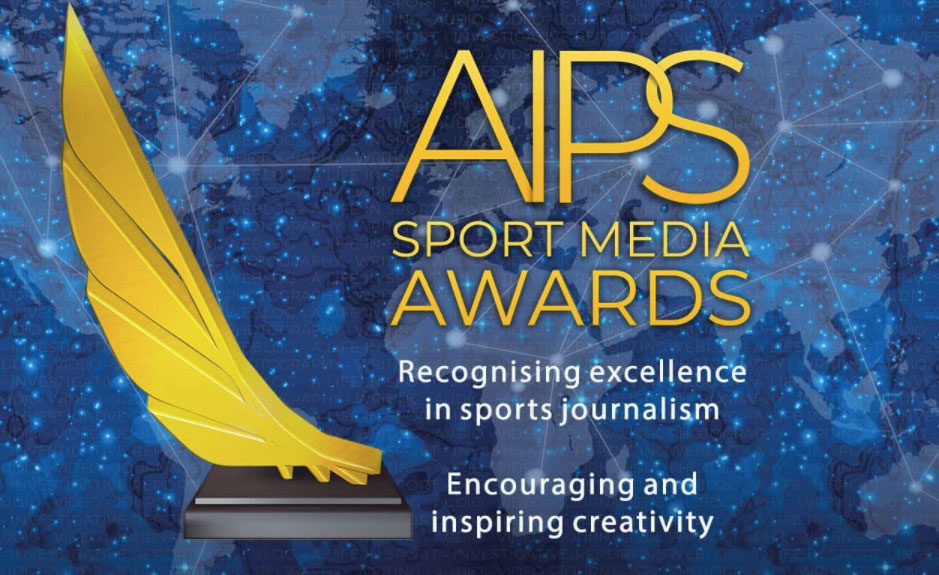 Check out the AIPS Awards by vising their event-specific website, aipsawards.com © AIPS
Check out the AIPS Awards by vising their event-specific website, aipsawards.com © AIPS
So often, silence is among the highest of compliments a journalist can receive. Journalists often don’t hear if they begin their on-deadline article with a first-class lede, nor are they often whisped away with praise when a photojournalist captures an indelible, emotive moment on their camera. Instead, they often only hear loud noise when they screw up on some point, or even when accurately and fairly covering a divergent event.
With the AIPS Sport Media Awards coming to FISU’s hometown of Lausanne for its first edition this December the top sports journalists look to make more than a little noise, they will take back to their home media markets some prestigious hardware.
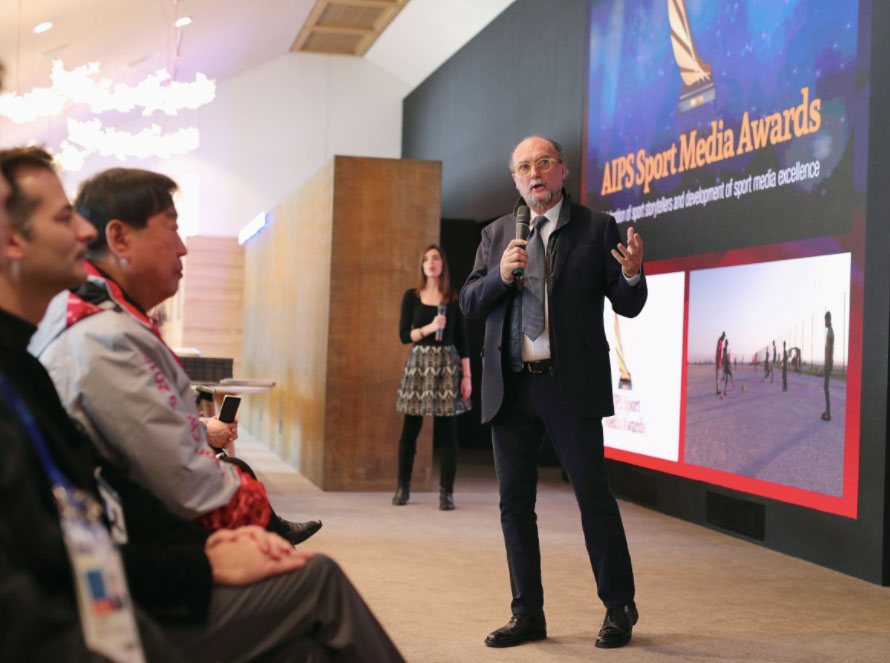 AIPS announced the awards during the Olympic Games PyeongChang 2018. Sports journalists can submit their works now. © AIPS
AIPS announced the awards during the Olympic Games PyeongChang 2018. Sports journalists can submit their works now. © AIPS
“Sports media excellence needs to be recognised,” AIPS President Gianni Merlo said. “This gives young people a roadmap to produce even better works. Whether its in print, digital or broadcast, quality will always prevail. To produce better content, this is always — always — the goal. It is time to recognise the value of our work.”
Submitting your work is free — and there’s over CHF 100,000 in prizes in the areas of photography, writing, video, audio, and journalistic weblog.
YOUNG REPORTER PROGRAMMES
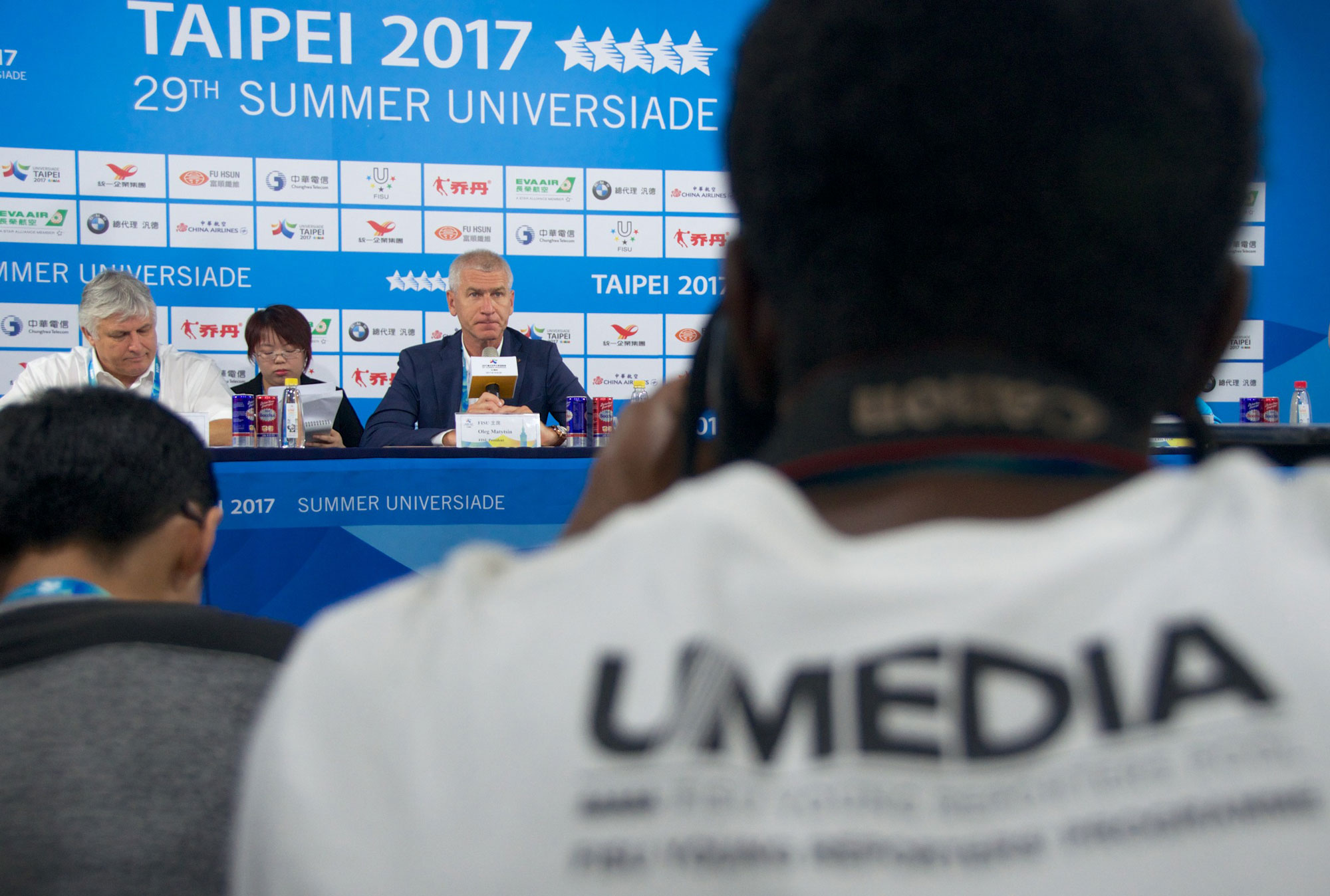 A FISU Young Reporter behind the camera during the final press conference of the Taipei 2017 Summer Universiade. Krasnoyarsk 2019 will have the first-ever FISU YRP at the Winter Universiade.
A FISU Young Reporter behind the camera during the final press conference of the Taipei 2017 Summer Universiade. Krasnoyarsk 2019 will have the first-ever FISU YRP at the Winter Universiade.
FISU was the leading sports federation when it came to helping build the bridge to the future of quality sports journalism when it launched its Young Reporters Programme with AIPS during the Shenzhen 2011 Summer Universiade. Since then, the Young Reporters Programme project went from FISU concept to something that other sports federations like FIFA and the IAAF have partnered with AIPS to emulate.
One had to look no further than the podium lectern during as FISU Young Reporter alumni Sonja Nikcevic led the presentation while also providing insight on how the two weeks in Shenzhen accelerated the speed and trajectory of her sports media career. Today Mrs. Nikcevic works for AIPS in their Italian office outside Milan.
“To work a major sports event, you almost always have to have the experience of already working the event,” Mrs. Nikcevic said. “If young journalists can’t get this experience without already having it, how are we supposed to develop the next generation of sports journalists? The Young Reporters Programme allows young journalists to get out of this vicious cycle.”